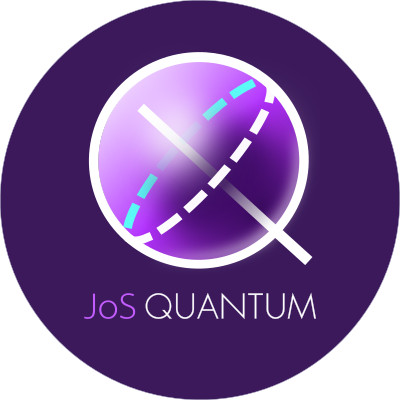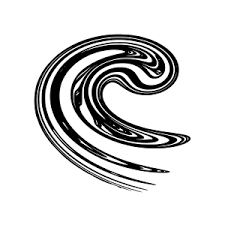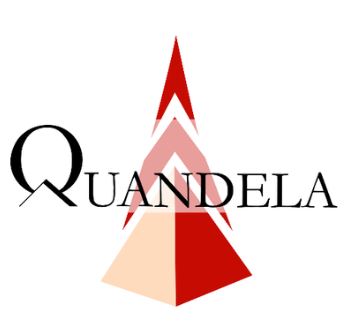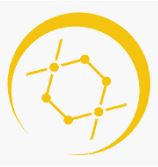Ever since Richard Feynman proposed quantum computing in the 1980s, physicists and computer scientists have been intrigued by the concept of a quantum computer. In theory, replacing the zeros and ones of conventional computer bits with the ups and downs or the clockwise and counterclockwise spins of subatomic particles can yield up to a cube root increase in computing speed. But there are many different ways of implementing a quantum computer – and all of them make extreme technical demands on the hardware, for example maintaining cryogenic temperatures approaching absolute zero. This is because quantum processors are very fragile – at higher temperatures the systems can become decoherent, losing information and producing noise and errors.

For years this put quantum computing in the realm of science fiction and beyond the reach of startups. But in 2015, Google and NASA unveiled the first operational quantum computer, which it has continued to improve upon and some speculate could be close to becoming operable, or achieving “quantum supremacy”. And by the end of 2017 IBM, Microsoft, Google, and many others had all announced cloud-based quantum computers that startups can rent to develop applications for the quantum platforms.
In the last few years cyberattacks have made governments and security-conscious businesses urgently interested in the theoretical ability of quantum computing to break most modern methods of public key encryption – and to create new, unbreakable methods. There are also hosts of nearly impossible scientific problems, from astrophysics to zoology, that could become tractable if and when somebody gets quantum computing right. So the realization of a functional quantum computer has become the goal of many new startups and investors.
Recently we featured Riverlane’s €3.7 million seed round to develop its quantum computing-based simulation engine to replace laboratory tests in areas such as drug discovery. In this review of the quantum computing field, we’ve identified over 50 recently founded European startups. Quantum computers are still plagued by noise, and there still isn’t a quantum computer that outperforms traditional computers, so it’s still too early to call any winners, but here’s a representative sample of ten more European teams on the starting line:

Cambridge Quantum Computing Limited (CQC), founded in 2014, is the most mature startup on this list. Given the many different ways in which quantum computers can be implemented and the uncertainty over which technical approach will prevail, CQC develops “architecture-agnostic” quantum software. Among its products are t|ket>, its architecture-independent quantum compiler; Eumen, its quantum chemistry platform; Quantum ML, its quantum machine learning framework; and Ironbridge, its quantum cybersecurity device. CQC has raised $18.8 million to date.
 IQM Finland is building scalable cryogenic hardware for quantum computers, developing high-speed quantum processors using superconducting qubits to reduce error rates. IQM’s most recent technological breakthrough drives quantum measurement time down to 300 nanoseconds. Based in Espoo, IQM Finland was founded in 2018 as a spin-off of the Quantum Computing and Devices research group of Aalto University and is affiliated with Quantum Technology Finland, a national excellence center funded by the Academy of Finland. IQM Finland just raised €11.6 million in financing to further develop its hardware solutions.
IQM Finland is building scalable cryogenic hardware for quantum computers, developing high-speed quantum processors using superconducting qubits to reduce error rates. IQM’s most recent technological breakthrough drives quantum measurement time down to 300 nanoseconds. Based in Espoo, IQM Finland was founded in 2018 as a spin-off of the Quantum Computing and Devices research group of Aalto University and is affiliated with Quantum Technology Finland, a national excellence center funded by the Academy of Finland. IQM Finland just raised €11.6 million in financing to further develop its hardware solutions.
 JoS QUANTUM – Founded in 2018 and located in Frankfurt, JoS Quantum is developing quantum software algorithms for the financial services sector. Like CQC, JoS seeks to be “architecture-independent” and provide access to various advanced and quantum computing implementations, whether they are based on Quantum Processing Units (QPUs), Quantum Annealers, Graphical Processing Units (GPUs), Application-specific Integrated Circuit (ASICs), or Field Programmable Gate Array (FPGAs). JoS seeks to accelerate solving business problems in risk management, fraud detection, trading, and more. The JoS platform is a calculation engine which is accessible via cloud, and is easily integratable into existing IT landscapes.
JoS QUANTUM – Founded in 2018 and located in Frankfurt, JoS Quantum is developing quantum software algorithms for the financial services sector. Like CQC, JoS seeks to be “architecture-independent” and provide access to various advanced and quantum computing implementations, whether they are based on Quantum Processing Units (QPUs), Quantum Annealers, Graphical Processing Units (GPUs), Application-specific Integrated Circuit (ASICs), or Field Programmable Gate Array (FPGAs). JoS seeks to accelerate solving business problems in risk management, fraud detection, trading, and more. The JoS platform is a calculation engine which is accessible via cloud, and is easily integratable into existing IT landscapes.
 Phase Space Computing was founded in 2017 in Linköping, Sweden. The startup doesn’t exactly do quantum computing, but produces educational toolkits that simulate quantum computing so that students can learn about it. Its featured toolkits include:
Phase Space Computing was founded in 2017 in Linköping, Sweden. The startup doesn’t exactly do quantum computing, but produces educational toolkits that simulate quantum computing so that students can learn about it. Its featured toolkits include:
- Quantum Key Distribution – This allows two communicating parties to generate a shared encryption key. Any attempt to eavesdrop on this process can be detected.
- Teleportation and Superdense Coding – Enables information to be sent via a single “entangled” quantum qubit.
- The Deutsch-Jozsa Quantum Algorithm – Provides an accessible example of how superposition and interference is used in quantum computation.
- Shor’s Quantum Algorithm – This algorithm can be used to factor large integers efficiently in a quantum computer, a hard problem for regular computers. Cracking it with quantum computing will crack most currently used public key encryption systems, a leading reason for current research interest in quantum computing.
 Q-Lion is another quantum computing software startup based in Madrid and founded in January 2019. Q-Lion focuses on creating realistic fault-tolerant quantum error-correcting codes. As previously mentioned, quantum computers are subject to noise and errors when they lose coherence. To combat decoherence, Q-Lion is developing low-level error-correcting codes specifically for trapped-ion quantum computers.
Q-Lion is another quantum computing software startup based in Madrid and founded in January 2019. Q-Lion focuses on creating realistic fault-tolerant quantum error-correcting codes. As previously mentioned, quantum computers are subject to noise and errors when they lose coherence. To combat decoherence, Q-Lion is developing low-level error-correcting codes specifically for trapped-ion quantum computers.

HQS Quantum Simulations is developing quantum algorithms to predict molecular properties for all kinds of materials and chemicals, in fields from pharmaceuticals to agrochemicals. Because the development of specialty chemicals in these fields is iterative, time-consuming, and often very expensive, simulations are widely used to decrease product development cycles, time-to-market, and R&D costs. However in many cases, simulations are simply not advanced enough to tackle certain problems. HQS is creating software for commercial quantum computing to tackle these problems at scale. HQS was founded in 2018 and is based in Karlsruhe, Germany.
 Quandela – Some quantum researchers are experimenting with the use of photons as qubits. Founded in 2017 near Paris, Quandela has designed a photon source device for quantum-based research and communication. The startup has developed a technique that makes it possible to emit single photons with identical characteristics from quantum dots at cryogenic temperatures. Its single-photon source device combines photonics and semiconductor quantum dots to permit the collection of emitted single-photons with exceptional efficiency, enabling researchers to strongly reduce the decoherence in quantum computing. Quandela has been funded by the European Union’s Horizon 2020 research and innovation programme.
Quandela – Some quantum researchers are experimenting with the use of photons as qubits. Founded in 2017 near Paris, Quandela has designed a photon source device for quantum-based research and communication. The startup has developed a technique that makes it possible to emit single photons with identical characteristics from quantum dots at cryogenic temperatures. Its single-photon source device combines photonics and semiconductor quantum dots to permit the collection of emitted single-photons with exceptional efficiency, enabling researchers to strongly reduce the decoherence in quantum computing. Quandela has been funded by the European Union’s Horizon 2020 research and innovation programme.
 Based in Munich, Kiutra builds cryogenic refrigeration systems that quantum computers need to prevent noise, or as we have previously referred to, decoherence. However Kiutra’s business model goes beyond quantum computing – cryogenic temperatures are a key prerequisite for many other research and industrial applications. Kiutra is a spin-off of the Physics Department at the Technical University of Munich, which has a long tradition of developing novel approaches to providing extreme low temperatures, and brings more than 50 years of cryo-engineering experience to the task. Kiutra closed a seed round with High-Tech Gründerfonds and APEX Ventures in May 2019.
Based in Munich, Kiutra builds cryogenic refrigeration systems that quantum computers need to prevent noise, or as we have previously referred to, decoherence. However Kiutra’s business model goes beyond quantum computing – cryogenic temperatures are a key prerequisite for many other research and industrial applications. Kiutra is a spin-off of the Physics Department at the Technical University of Munich, which has a long tradition of developing novel approaches to providing extreme low temperatures, and brings more than 50 years of cryo-engineering experience to the task. Kiutra closed a seed round with High-Tech Gründerfonds and APEX Ventures in May 2019.
 GTN (Generative Tensorial Networks) has developed and patented a quantum machine learning technology to transform drug discovery. Bringing a single new drug to the market costs nearly $3 billion, and often only delivers an intervention that barely differs from those already on the market. Projections into the future are not promising, with an expected 50% drop in R&D output every nine years. GTN uses quantum-based software to search the astronomically large space of drug-like molecules. Its software combines and builds upon techniques from machine learning and quantum physics to generate novel drugs from known patterns. Based in London, GTN was founded in 2017 and has raised £2.1 million across two rounds.
GTN (Generative Tensorial Networks) has developed and patented a quantum machine learning technology to transform drug discovery. Bringing a single new drug to the market costs nearly $3 billion, and often only delivers an intervention that barely differs from those already on the market. Projections into the future are not promising, with an expected 50% drop in R&D output every nine years. GTN uses quantum-based software to search the astronomically large space of drug-like molecules. Its software combines and builds upon techniques from machine learning and quantum physics to generate novel drugs from known patterns. Based in London, GTN was founded in 2017 and has raised £2.1 million across two rounds.
 Based in Copenhagen, Sparrow Quantum A/S develops and commercializes photonic quantum technology components based on research and patents developed in the Niels Bohr Institute Quantum Photonics Lab. Sparrow is making photonic research easier with its new single-photon chip, which delivers a stream of single photons to the computational stream with 98% efficiency. Founded in 2015, Sparrow is funded by Seier Capital and Innovation Fund Denmark through the Bohr Photonics Lab and the Danish Center for Quantum Innovation, Qubiz.
Based in Copenhagen, Sparrow Quantum A/S develops and commercializes photonic quantum technology components based on research and patents developed in the Niels Bohr Institute Quantum Photonics Lab. Sparrow is making photonic research easier with its new single-photon chip, which delivers a stream of single photons to the computational stream with 98% efficiency. Founded in 2015, Sparrow is funded by Seier Capital and Innovation Fund Denmark through the Bohr Photonics Lab and the Danish Center for Quantum Innovation, Qubiz.
By the way: If you’re a corporate or investor looking for exciting startups in a specific market for a potential investment or acquisition, check out our Startup Sourcing Service!




